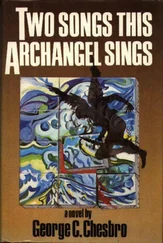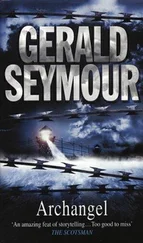“I didn’t think you were still in the city,” she said. “I was surprised to get your note.”
Calmly, quickly, smiling as if it meant nothing, he explained that his had been the company she’d read about. “Everyone boarded the train, in the end,” he said. “All but three other ambulance drivers and me. We’re supposed to bring more medical supplies down south tomorrow.”
Then, instead of confronting her about her failure to persuade Dr. Hirschberg to remove the splinter in his leg, instead of begging her to do something else to keep him from returning to the front, he asked if she wanted to take a run. “This fellow here,” he said, pointing to a soldier pulling a toboggan by a rope, “says he’ll let us take a ride on his.”
What, she wondered, had actually gone on at the barracks? Had he been one of the leaders, or one of those hanging back at the edges, following the tide? “I’d like that,” she said.
Up the stairs to the little platform, which was lit by lanterns and was higher than she thought. She could see domes, chimneys, scaffolding, train tracks, the far side of the river. She sat in front, snugged between Boyd’s outstretched legs, the steering rope tight in his hands. The moon was up, lighting the scene and accompanied by two bright stars, which perhaps were planets. The wind had dropped and the air was still and cold. At the base of the run soldiers and children and passersby gathered in small knots, chatting and looking up at the toboggan, which eased over the lip, dropped, and then began to gather speed. Music drifted from across the square — an accordion, a violin — and also the smell of potatoes roasting. His legs kept her skirt from blowing as they went faster. What did she know about him, really? That inside his leg was a long sliver of someone else’s body. That he’d seen that body shattered before his eyes; that he’d lifted other bodies from the snow and bandaged those who were still alive, loaded them into sleighs and driven them one place and another. That he’d seen a man named Havlicek with his head blown off and had slept, for three nights, in the company of the frozen corpse. But about his life before Archangel she knew almost nothing, other than those summers spent with one uncle or another, on one farm or another. Where had he lived and what were his parents like, did he have brothers and sisters and a favorite friend, had he left behind one girlfriend or a whole string, a ukulele or a camera or a cherished set of chisels? At night, when he’d leaned over a desk to study his schoolbooks, had he done that restlessly or with pleasure? She didn’t know whether he liked to fish or swim, watch movies or read, join a gang at the baseball field or lie in a field by himself, dreamily watching a hawk. Even his journey with Havlicek’s body remained a mystery; much of what she knew, what she thought she knew, came not from his account but from various rumors.
She leaned back into his chest. All she’d withheld from him and others, all the ways in which, desperately, she’d tried to guard some essential core when she ought to have opened herself — but if she’d done that and let the lives of her soldiers flow in, she would have been unable to work. So she’d been right, then? By denying them one thing, her deepest self, she’d been able to offer all her useful skills. Some, she supposed, would rather have had her feelings. She settled against his chest, she let her back and shoulders flow into him and she felt him pressing back.
The sled shot across the square, slowed when it hit a soggy patch, came to rest near a cart filled with broken branches, which was being investigated by two dogs. She rose, smiling, and brushed off her skirt. “That was nice,” she said, as they walked back toward the run. The empty toboggan, which Boyd was towing, bounced on the rims of their footprints. “I can’t believe I haven’t done that all winter.”
“You’ve been busy,” he said. “But I’m glad you enjoyed it. To me it feels almost like flying.”
They stepped through the crossed shadows thrown by the structure’s wooden frame, and then they stopped. With an oddly formal gesture, he handed her the rope. “My friend will be by for this. But I’d like to do one by myself, really fast. Would you wait a few minutes?”
Before she could object he picked up a small sled tucked behind the steps and then headed up. She waited below, enjoying the feel of the air on her face, watching as he climbed with the sled under one arm. At the top he stood and tested the rope stretched between the two ends of the steering yoke. For a second he paused, looking as if he were about to throw himself belly down on the sled, hands grasping the yoke — but then he did something with one foot and kicked the sled into motion with him standing up on it, holding on to the rope as if on to the bridle of a horse, leaning back against it, gathering speed. About halfway down the sled veered left and she could see it was going to bump into the lip of the run. It bumped and — did she see him, just then, let go the rope on purpose, raising his hands into the air? Did she see him look down and, like a diver, twist his hips and shoulders halfway round, so that he arched gracefully away from the icy tower and toward a clear spot on the ground? He would fall, she saw, not on his head or his spine but on his left side, the angle at which he had poised himself suggesting that his left ankle and knee would strike first; he would shatter that leg, perhaps also his hip; he might cripple himself; he might lose the leg. He probably wouldn’t die. He wasn’t trying to kill himself, he wanted what they all wanted — which was, she realized as she ran toward the spot where he’d strike the ground, what she too wanted more than anything else: he wanted to leave this place behind and go home, home, home.
Author’s Note and Acknowledgments
Most of the characters here are invented, but G.H. (Glenn H. Curtiss), Sir Oliver Lodge, the Professor (Louis Agassiz), and some of the geneticists mentioned are historical figures, and the fiction is rooted in factual events. On July 4, 1908, the June Bug flew in Hammondsport, New York, winning the Scientific American trophy. Sir Oliver Lodge’s objections to Einstein’s theory of general relativity continued long after the expeditions observing the May 29, 1919, eclipse. Louis Agassiz founded a summer school for natural history at Penikese Island in 1873; the quoted stanzas are from John Greenleaf Whittier’s poem “The Prayer of Agassiz” (1874). Among the passengers aboard the Athenia , the first British ship to be sunk by the Germans in World War II, were a number of participants from the Seventh International Congress of Genetics, held in Edinburgh. And the American North Russia Expeditionary Force (also known as the Polar Bear Expedition: the 339th Infantry, First Battalion of the 310th Engineers, 337th Field Hospital, and 337th Ambulance Company) fought in North Russia during the period mentioned here.
Portions of this book have appeared previously, in somewhat different form, in the following publications: “The Investigators” in A Public Space , “Archangel” in One Story , “The Island” in Salmagundi , and “The Ether of Space” and “The Particles” in Tin House . “The Particles” will also appear in The PEN / O. Henry Prize Stories 2013 . My thanks to these publications and their editors. Thanks also to Jill Gilbreth and Jim Shepard, who generously offered helpful readings, and to my husband, Barry Goldstein, whose own work inspired “Archangel” and who helped me throughout.
Margot Livesey read many versions of all these pages; my deepest thanks, as always, for her patience and her brilliant suggestions. Finally, my beloved agent, Wendy Weil, encouraged me before her untimely death with steadfast brilliance and attention. I miss her more than I can say.












